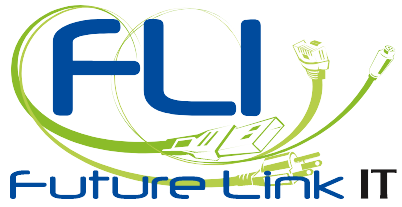
When your remote employees login to your network from a public Wi-Fi network with laptops, tablets, and smartphones, your network becomes susceptible to malware attacks and other vulnerabilities by hackers and third parties, putting your sensitive data in jeopardy.
In addition, when employees use their own devices, they open up your network to security threats.
When data is compromised, this can lead to financial and legal issues. Data breaches are among the most common and costly security failures in organizations of any size. One of the worst-case scenarios is being a victim of a cybercrime where your data is encrypted until you pay a ransom.
Protecting your network and data is more important than ever. There are ways you can secure your network and save your data from threats.
- Use a Virtual Private Network (VPN).
When you require remote employees to use a VPN, they connect securely to your network. VPNs encrypt the user’s internet traffic, run adequate security patches, and monitor for viruses. - Set up cloud services. Cloud services is a web-based application that allows employees to access the network securely from any location. Trusted cloud services provide safe virtual storage to protect your business from potential security threats. The cloud service provider takes on the data security responsibility and has the expertise to handle it. Your information is stored on an off-site server with enhanced security.
- Implement endpoint security. Companies must ensure employees are using the latest versions of all applications to reduce the risk of viruses and malware attacks. Endpoint security protects and updates all your applications and extensions, including Microsoft Office, Outlook, Adobe, browsers, and Java by using antivirus programs and operating system firewalls.
- Limit employee access. Employees should only be given access to the data they need to perform their jobs. This reduces your exposure to threats and helps you better manage security risks.
- Update passwords. When employees use common and frequent passwords, their accounts become easy targets for hackers. Require your employees to use unique, longer passwords (at least 14 characters) and prompt them to change them not more than every 12 months. If your business doesn’t have single sign on, there should be a unique password for your network login, email and CRM. Enable account locking in response to bad login attempts. And, consider using multi-factor authentication for passwords to add another layer of protection.
- Back up your files. Security breaches can cause data loss. That’s why it is important to back up your files. Quite simply, you must have a backup, storage and retrieval plan. Keep in mind that the best backup system not only preserves your data, but also enables you to access and restore your data when you need it.
Finally, it’s essential to train your employees on cybersecurity best practices. Human error is one of the main ways networks get attacked. When employees are educated, they think twice about clicking on a malicious attachment or URL and a fake web page. Cybersecurity training teaches employees what to look for and how to identify phishing schemes and other scams.
Future Link IT can help keep your network safe from security breaches. Let’s chat today to get you started.

